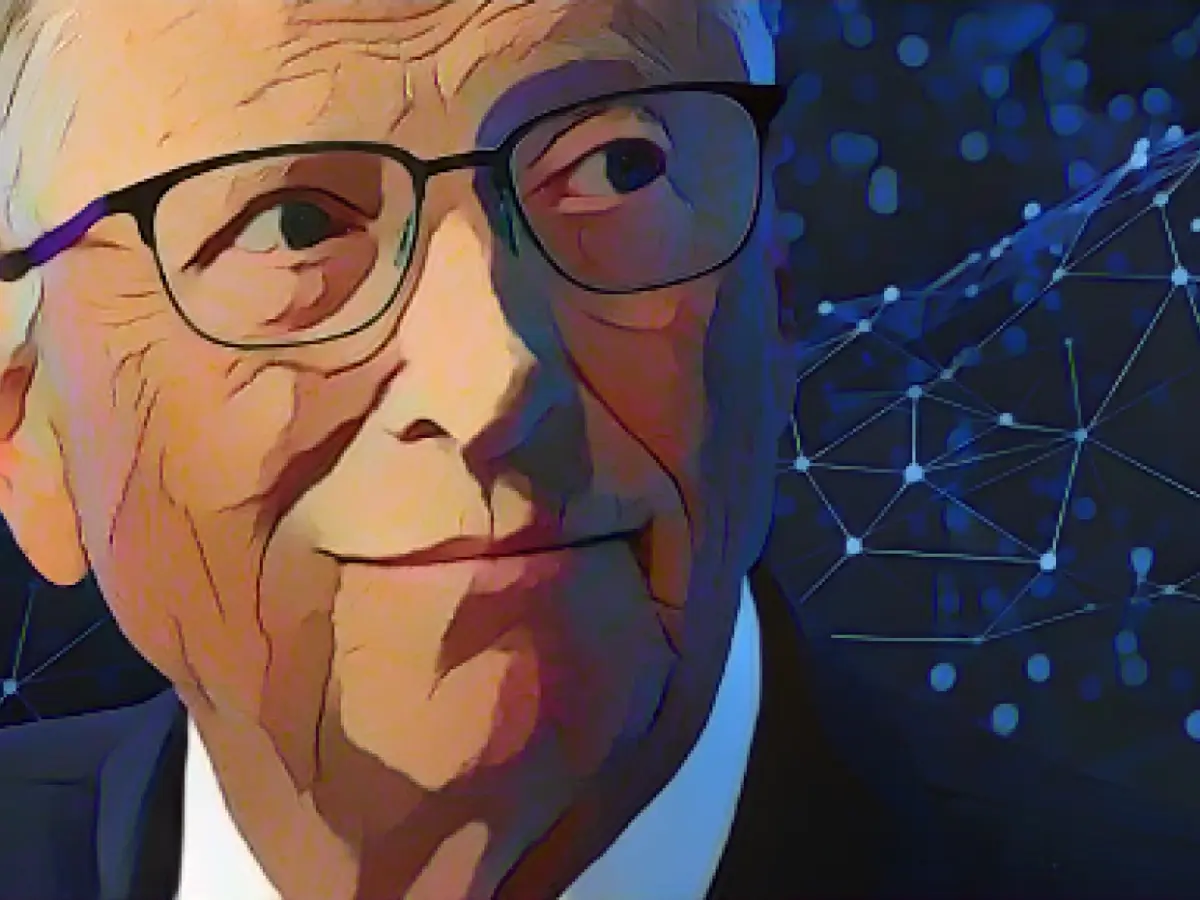Bill Gates: Embracing AI's Optimistic Future in Healthcare Innovation
Bill Gates, the visionary co-founder of Microsoft, shares his optimistic outlook on artificial intelligence (AI) in shaping a brighter future.
Innovation has been at the core of Gates's work, from founding Microsoft to spearheading the Gates Foundation's efforts to combat worldwide issues. One remarkable achievement is the drastic reduction in child mortality rates—halved since 2000— attributed partly to innovations in healthcare, like the development of faster, cheaper, and safer vaccines.
AI holds immense potential to accelerate the discovery process of new breakthroughs. One noteworthy advancement has been the expedited creation of life-saving medicines. AI tools can significantly streamline the development process of new pharmaceuticals, with various companies pursuing AI-driven innovations in cancer treatment.
The Gates Foundation invests in this sector, emphasizing the importance of leveraging AI for addressing healthcare concerns that disproportionately impact the world's poorest populations. While Africa has yet to achieve the same level of AI applications in healthcare as developed nations, Gates confidently anticipates an equivalent adoption rate within the next 3-4 years.
Meeting innovative minds from developing countries recently, Gates was inspired by their AI research, aiming to improve lives in their local communities. Although their projects are in their infancy, they are paving the way for a significant technological boom in the years to come.
Gates is particularly fascinated by teams in Senegal working on AI-driven projects tackling antibiotic-resistant bacteria, HIV risk assessment, facilitating easier healthcare information access, and more. The innovative ideology of these grassroots researchers brings him hope for overcoming some of the most pressing challenges in their communities.
An alarming statistic to take note of: around two deaths occur every minute worldwide during childbirth or pregnancy. A team in India is harnessing the power of AI to improve upon these odds. By tapping into the power of large-language models like ARMMAN, they aspire to create AI-powered tools that serve as co-pilots for healthcare providers dealing with high-risk pregnancies. ARMMAN, available in English and Telugu, delivers context-specific recommendations based on the user's expertise, making it suitable for professionals with varying levels of experience.
These projects represent a work in progress, with challenges such as affordable scalability and reliable back-end support still to be addressed. It's crucial to mitigate concerns about potential biases in AI, including the risk of unfounded assumptions and hallucinations that can lead to catastrophic consequences in a medical context.
While some researchers argue that hallucinations may be a built-in challenge in AI technology, Gates remains hopeful. He envisions AI models learning to distinguish facts from fiction, drawing on the promising work of organizations like OpenAI. (Disclaimer: Microsoft is a significant OpenAI investor and collaborator.)
To maximize the benefits of AI in healthcare, it's imperative to consider and manage the associated risks. Somanasi, an AI-driven education platform, is making significant strides in enhancing personalized learning materials for Kenyan students. These customized tools, combined with Somanasi's hybrid learning model (Suaheli for "together we learn"), will provide meaningful advantages for the students who use them, catering to their unique needs and local contexts.
As AI continues to transform healthcare sector, it is an exhilarating time to witness the rapid progress in finding solutions for humanity's most pressing challenges. Gates remains optimistic about AI's potential in democratizing groundbreaking technologies across the globe, minimizing the gap between advanced and under-resourced regions.







